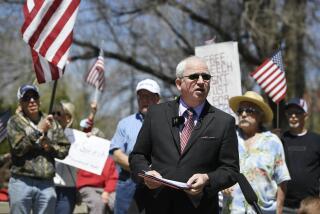Jerry Sandusky case: Judge lays down some ground rules for trial
A day before the start of jury selection in the child sex-abuse case of former Penn State assistant football coach Jerry Sandusky, the Pennsylvania judge sitting on the case issued several rulings designed to clear the decks so that the trial can begin as scheduled.
Judge John Cleland on Monday ruled against the defense and held that the prosecution need not turn over research material that it had on potential jurors. He also held that adult victims will not be allowed to use pseudonyms when they testify, and he clarified the rules under which the media will operate during the trial.
The actions indicate that Cleland is prepared to push toward trial, scheduled to start Tuesday with jury selection in Centre County Court in Bellefonte, Pa. Still pending is a defense bid to the Pennsylvania Supreme Court to delay the trial’s start and another defense request before Cleland to throw out some of the charges.
Sandusky, 68, faces 52 counts that he abused boys over 15 years. The boys were clients of a charity Sandusky founded called The Second Mile, and some of the incidents of abuse are alleged to have taken place at Penn State University, where Sandusky took the children on field trips. Penn State head football coach Joe Paterno was fired because of the scandal.
As part of the pre-trial battling, the defense had sought the research by the state on potential jurors, a move that Cleland rejected along with a request for a hearing on the issue. The basis for the request was an anonymous letter that purports to be a list of the information collected.
“Even if the commonwealth collected the information in this case in the manner the defense asserts and which the commonwealth denies, I do not believe that the information is constitutionally required to be turned over to the defense,” Cleland wrote.
“A motion filed by counsel must be supported by allegations of fact backed up with some credible basis to believe the allegations to be true,” Cleland said. “Otherwise the court and counsel can be engaged in chasing chimeras.”
In the trial, the testimony of the alleged victims is expected to be key. Many of the boys are now adults and have requested that they be allowed to use pseudonyms to keep their identities confidential. They’ve also requested that some personal details be withheld from the public. The request was supported by state and national victims’ organizations.
So far, the alleged victims have to be referred to by number, Cleland wrote, but that will end once the testimony phase begins. Then, courts are required to be as open as possible in order to show that a defendant is being treated fairly. The judge wrote that there is “no support in Pennsylvania law for offering anonymity to an adult witness because the witness is one of a class of victims of a particular form of crime.”
Cleland said that he trusted that all parties will do what they can to minimize the trauma of having to testify.
Cleland had said he would allow electronic communication, but not photographs or the recording or broadcasting of any verbatim account of the proceedings while court is in session. Media groups sought clarification last week.
In his latest ruling, Cleland rescinded permission for any electronic communications from inside the Centre County courtroom.
“It is readily apparent from the allegations in the media’s motion … that the standard I applied in my definition is confusing to reporters, unworkable, and, therefore, likely unenforceable,” the judge wrote.
ALSO:
George Zimmerman returns to jail after bond is revoked
Mormons steal the show at Gay Pride march in Salt Lake City
Face transplant for ‘zombie’ victim? First comes simple survival
More to Read
Sign up for Essential California
The most important California stories and recommendations in your inbox every morning.
You may occasionally receive promotional content from the Los Angeles Times.











